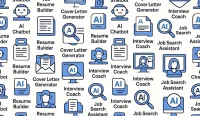Gen Z has been branded financially reckless—viral spending habits, lazy money management, endless microtransactions. But what if that reputation isn’t fair? Maybe the deck was stacked against them from the very start.
As the first true digital-native generation, Gen Z has had smartphones, apps, and instant payments from day one. They don’t carry cash, rarely use credit cards, and link everything directly to payment apps. Just tap, scan, or click—money disappears without feeling real.
Digital purchases make impulse buying effortless. Scroll, spot, tap “buy now,” and it’s already shipping. Microtransactions feel natural: $1.99 for game coins, $3.99 for premium features. When money doesn’t feel tangible, spending becomes abstract.
But is this really the source of Gen Z’s financial troubles? Not exactly.
The Real Debt Crisis: $94,000 Average Per Person
The numbers are staggering. According to Talker Research for Newsweek (March 2025):
- Gen X average debt: $53,000
- Millennials average debt: $59,000
- Gen Z average debt: $94,000
This isn’t just spending habits—it’s systemic failure hitting them at the worst possible time.
The COVID Generation’s Perfect Storm
While every generation faces economic challenges, Gen Z got hit by COVID-19 at critical life moments:
- Younger Gen Z: Lost key schooling years to remote classes
- Older Gen Z: Missed senior year celebrations, graduation ceremonies
- Job market disruption: Companies went remote, laid off workers, replaced them with fewer people doing more for less
The pandemic didn’t destroy the economy, but it created lasting scars. Many things never came back—24/7 diners, late-night retail, full staffing levels. Gen Z entered adulthood feeling like the market was stacked against them.
Student Loan Crisis: The $23,000 Starting Point
The traditional path—good grades → good college → good job → honest living—is looking more like a losing proposition for Gen Z.
The College Cost Reality:
- Undergraduate student loan rates: ~6.4%
- Graduate student loan rates: ~8%
- Average Gen Z borrower debt: $23,000 (and climbing)
- 43.5% of Gen Z adults carry student debt
Student loans are unique—they can’t be discharged through bankruptcy, and interest compounds quickly. Many graduates find their debt has ballooned, forcing them to repay the same loan multiple times over.
The Relief Problem: Student debt relief remains a major political issue, but shifting administrations produce mixed results. Recent graduates face uncertainty about their financial future, wondering if college was even worth it.
The Job Market Reality Check
Remember when getting a job meant stability? Uncle knew a friend at the paper factory, you started checking for mistakes, worked your way up to regional manager, retired with a pension. Those days are gone.
The Experience Catch-22:
- Gen Z needs experience for good jobs
- No one hires entry-level workers
- Liberal arts degrees compete against their own professors for teaching jobs
- Teaching positions are competitive and underpaid
Many Gen Zers chose passion degrees (literature, history) that seemed great at 18 but offer limited career paths. They’re competing against mentors for the same teaching positions, often while their student debt grows.
The Job Market Reality Check
The path from classroom to career has never been tougher. Experience is required before opportunity, and passion degrees rarely translate into stability. The modern workforce rewards adaptability — blending creativity, technical literacy, and continuous learning. The rules changed, but your potential hasn’t. You just need to know where to apply it.
Explore Entry-Level & Career Transition Roles →The Cost of Living Nightmare
Even basic necessities feel out of reach:
Groceries: Bell peppers at $3/pound, ground beef at $7/pound—regular purchases creeping up 10-20%
Transportation: Car prices hit by inflation, tariffs, and foreign components. Gas averaging $3/gallon with Middle East volatility. Many Gen Zers can’t afford personal vehicles and face unreliable public transit.
Housing: Only 3% more Gen Zers own homes than Millennials did at the same age (during a financial crisis). They make up just 3% of homeowners with the lowest average income of any generation.
Rental Market: Skyrocketing prices, Airbnb competition, private equity firms buying houses en masse. Even with roommates, rent consumes huge chunks of monthly budgets.
The Social Media Pressure Cooker
Gen Z faces unprecedented pressure to keep up. Social media algorithms bombard them with influencer lifestyles, creating constant FOMO. When everyone seems ahead of the curve, money feels like the solution.
The Scam Vulnerability: Gen Z and Baby Boomers share vulnerability to digital scams—fake AI images, voice-cloning schemes, emotional manipulation tactics. Being tech-savvy doesn’t protect against sophisticated fraud.
The Crypto/NFT Trap: Most cryptocurrency and NFT investors are Gen Z. When something presents as “investment in the future,” financial literacy gaps become dangerous. People lose entire life savings on Bitcoin passwords or server shutdowns.
The “Money Isn’t Real” Mentality
Faced with insurmountable debt before adulthood even begins, many Gen Zers adopt a fatalistic view: “If I’m already $94,000 in debt, what’s another $50?”
This isn’t laziness—it’s psychological adaptation to impossible circumstances. When jobs are shipped overseas or replaced by AI, when prices keep rising, when opportunities shrink, can anyone blame them for questioning the system?
The Generational Divide
Older generations say Gen Z needs to “get it together.” Millennials are even punching down. But every past generation had periods when the world worked in their direction. Gen Z never got that chance.
The Retirement Reality: Older Gen Zers have ~40 years to retirement, but saving isn’t even on their radar. They’re focused on surviving today, not planning for decades ahead.
Is There Hope?
Gen Z isn’t waiting for financial windfalls—they’re waiting for systemic change to make the economy hospitable. But massive economic overhaul faces huge barriers, and time keeps passing.
The future grows more uncertain as Gen Alpha enters the workforce. Gen Z might be drowning in debt, but every era faces its own challenges. The question isn’t whether Gen Z can “get it together”—it’s whether the system can adapt to serve them.
Frequently Asked Questions
Q: Is Gen Z’s debt really that much worse than other generations?
A: Yes—$94,000 average debt compared to $59,000 for Millennials and $53,000 for Gen X, with most of it being student loans that can’t be discharged.
Q: Are digital payments really causing the problem?
A: They contribute to impulse spending, but the core issue is systemic—expensive education, limited job opportunities, and rising costs hitting them at vulnerable life stages.
Q: Why can’t Gen Z just get better jobs?
A: The job market has changed. Entry-level positions are scarce, experience requirements are high, and many traditional career paths have disappeared or become highly competitive.
Q: Is student debt relief the solution?
A: It would help, but political shifts create uncertainty. The broader issue is making education affordable and creating viable career paths for graduates.
Q: What can Gen Z do to improve their situation?
A: Focus on high-demand skills, consider alternative education paths, build emergency funds, and advocate for systemic changes while managing what they can control.




